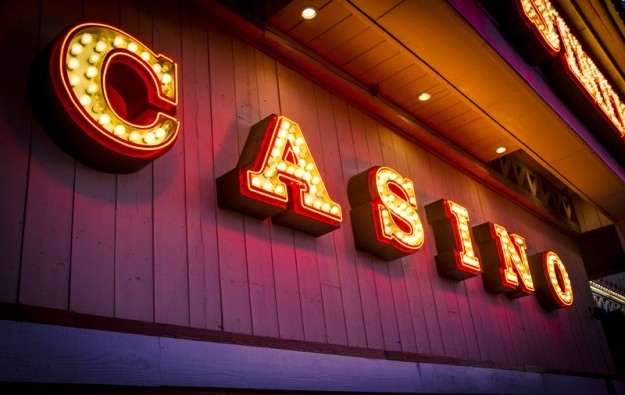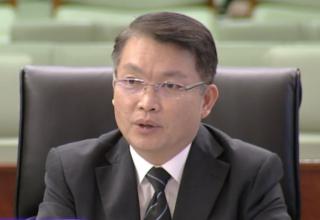Operators hint 2020 target for Japan casino licences
Jun 01, 2018 Newsdesk Japan, Latest News, Top of the deck

Robert Goldstein, president and chief operating officer of U.S.-based casino operator Las Vegas Sands Corp, says he expects casino licences in Japan to be awarded in 2020 at the earliest, if the broad regulatory framework for the establishment of a casino industry is passed by the country’s parliament this summer.
The executive indicated additionally that the opening date for an initial casino resort or resorts might be pushed out to the year 2025.
Japan’s parliament, a body known as the Diet, started discussing in the lower chamber last week the Integrated Resorts (IR) Implementation Bill, which details the specifics on how casinos are to be administered and regulated; the taxation regime to be applied to them; and the number of licences to be issue.
“We are all waiting to see if the [IR Implementation] bill gets through this summer,” said Mr Goldstein. “If it [the bill] gets through, I think they [the Japan government] will form the gaming group in 2019, and have the decision on who gets a [casino] licence sometime in early 2020,” he added.
The executive was speaking on Wednesday at an investor event called the 34th Annual Bernstein Strategic Decisions Conference, held in New York City, in the United States.
Mr Goldstein said: “If it [the IR Implementation Bill] does get through this summer, it would be concluded with licences awarded in 2020. Companies would be in the ground in 2021 and open by 2025.”
He added: “I think Japan is a terrific opportunity for our company and others, we would love to be there.”
Lawrence Ho Yau Lung, chairman and chief executive of Melco Resorts and Entertainment Ltd, another suitor for a Japan licence, said in a recent interview with business news television channel CNBC that the likely earliest bidding for Japan was “probably 2020 or 2021”.
Mr Ho added it would probably take as much as two-thirds longer to build a large-scale Japanese resort as it had to build some Macau ones: “five or five-and-a-half years,” compared to “three-and-a-half to four years” in Macau, meaning the earliest a first Japan property could open would be 2025.
Vote next week
The parliamentary membership of Japan’s two governing parties is considering extending the current session of the national legislature, buying time to pass the IR Implementation Bill. The current parliamentary session is set to end on June 20.
According to GGRAsia’s Japan correspondent, the coalition parties are pondering extending the current session by about 20 days, into early July.
The Committee on Cabinet of the House of Representatives – Japan’s lower parliamentary chamber – is expected to make a resolution on the casino bill next week, with a vote at a plenary session expected on June 7, said our correspondent.
The bill will then move to the upper house – the House of Councillors – for further discussion and voting.
In his Wednesday’s comments, Las Vegas Sands’ Mr Goldstein said additionally that the firm would be open to partner with a local company to bid for a licence in Japan. “If that’s a necessity, that will be the case,” said the COO.
The executive stated however that the local market would be “pivotal” for Las Vegas Sands, if the company eventually wins a gaming licence in Japan.
“We’ve always believed local market first and then tourist market second,” said Mr Goldstein. “We wouldn’t build [a project] predicated on a Chinese visitation, we would build it based on a local market in Japan.”
The IR Implementation Bill – as submitted to the Diet – proposes an initial cap of three casino resorts nationwide, and a fixed tax rate of 30 percent on any casino gross gaming revenue (GGR) generated by that country’s proposed gaming resorts. It sets a JPY6,000 (US$55) casino entry fee for locals for 24-hour access, and limits casino visits by Japanese to three times a week and 10 times per month in aggregate.
In the interview with CNBC, Melco Resorts’ Mr Ho said additionally that the “payback” on the capital cost of a resort – he mentioned US$10 billion for Japan – was likely to take longer than in either the Macau market or Singapore.
“Usually with these mega buildings the payback is probably three to five years and I think in Japan it’ll be longer,” the entrepreneur stated.
Asked if return on capital investment could take as long as a decade, Mr Ho responded: “I wouldn’t say 10 years, but definitely longer than your typical Asian development. For instance, Singapore had probably a payback of four years and I think Japan will be longer, but the potential is so great that it’s worth the wait.”
Related articles
-
 Marina Bay Sands projects 40pct EBITDA...
Marina Bay Sands projects 40pct EBITDA...Nov 20, 2024
-
 Marina Bay Sands tapping US$9bln loan...
Marina Bay Sands tapping US$9bln loan...Nov 19, 2024
More news
-
 GKL provides its new table game...
GKL provides its new table game...Nov 22, 2024
-
 The Baron Upright, a new cabinet from...
The Baron Upright, a new cabinet from...Nov 22, 2024
Latest News
Nov 22, 2024
Casino operator Grand Korea Leisure Co Ltd (GKL) says it has achieved its first commercialisation of a new-to-market table game, developed via an in-house competition dating to 2021. Grand Korea...Sign up to our FREE Newsletter
 (Click here for more)
(Click here for more)
Pick of the Day
”As we navigate the final steps of the licensing process, we remain confident in our ability to align with Brazil’s regulatory requirements”
Eusebio Tanco
Chairman of DigiPlus Interactive
Most Popular
 Macau to get 36mln visitors in 2025: Secretary Lei November 21, 2024
Macau to get 36mln visitors in 2025: Secretary Lei November 21, 2024  Gaming technology firm IGT reports hacking incident November 21, 2024
Gaming technology firm IGT reports hacking incident November 21, 2024  Wynn Al Marjan building structure 55pct complete: promoter November 22, 2024
Wynn Al Marjan building structure 55pct complete: promoter November 22, 2024  EBITDA a focus in Macau market share battle: Jefferies November 21, 2024
EBITDA a focus in Macau market share battle: Jefferies November 21, 2024  Star Entertainment clinches US$130mln loan facility November 21, 2024
Star Entertainment clinches US$130mln loan facility November 21, 2024









